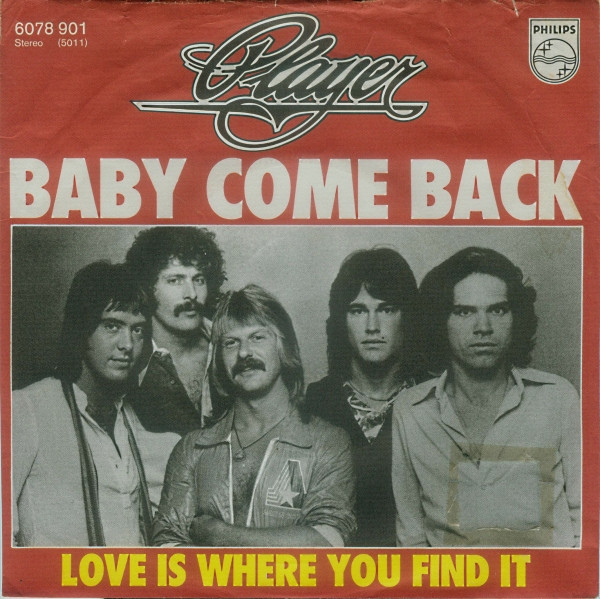
About the Song
In the realm of classic soft rock anthems, few songs resonate with the enduring power of “Baby Come Back” by the American rock band Player. Released in 1977 as the lead single from their self-titled debut album, this heartfelt ballad struck a chord with listeners worldwide, topping the Billboard Hot 100 chart and cementing its place as a timeless favorite.
The song’s enduring appeal lies in its poignant blend of vulnerability and hope, as the narrator, played by the band’s lead vocalist Peter Beckett, pleads with his estranged lover to return to him. The lyrics, crafted by Beckett and keyboardist John Charles Crowley, paint a vivid picture of a love gone astray, acknowledging past mistakes while desperately seeking a second chance.
“Baby Come Back” opens with a gentle piano melody, setting the stage for Beckett’s emotive vocals. His voice, imbued with a blend of regret and longing, carries the weight of the song’s message, conveying the depth of the narrator’s heartache. The lyrics unfold like a heartfelt confession, as he admits to his shortcomings and expresses his unwavering love for his departed partner.
The chorus serves as the song’s emotional crux, with Beckett’s passionate plea echoing through the speakers: “Baby come back, it’s been a long, long time. Baby come back, do what you have to do to make me mend.” The repetition of the phrase “Baby come back” underscores the urgency of his desire for reconciliation, while the line “do what you have to do to make me mend” hints at his willingness to do whatever it takes to rekindle their relationship.
The song’s instrumentation, characterized by soft guitar strumming, mellow keyboards, and a subtle drumbeat, complements Beckett’s vocals perfectly, creating an atmosphere of tender introspection. The arrangement never overpowers the emotional core of the song, allowing the lyrics and vocals to take center stage.
“Baby Come Back” concludes with a lingering piano solo, echoing the song’s themes of longing and hope. The final notes fade into silence, leaving the listener with a sense of poignant introspection and the lingering hope for reconciliation.
Player’s “Baby Come Back” stands as a testament to the power of music to express the complexities of love and loss. Its enduring popularity speaks to its ability to connect with listeners on a deeply personal level, offering solace and hope in the face of heartbreak. The song’s timeless appeal lies in its raw honesty, emotional vulnerability, and unwavering belief in the power of love to overcome adversity.